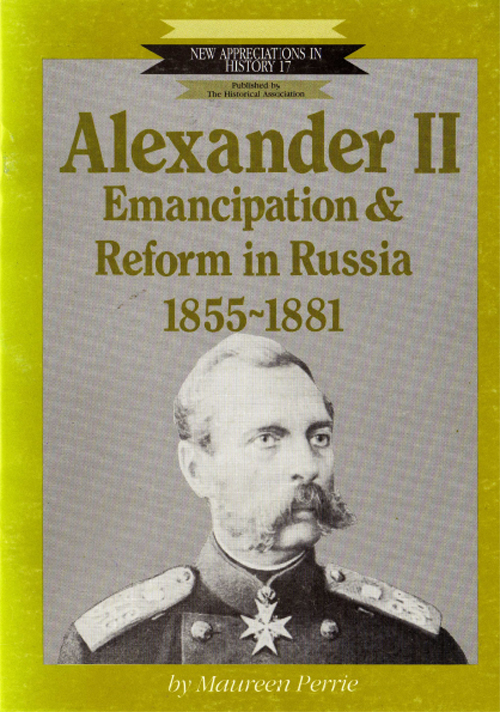Alexander II
Classic Pamphlet

Emancipation and Reform in Russia 1855-1881
The ‘great reforms' of Tsar Alexander II (1855-81) are generally recognised as the most significant events in modern Russian history between the reign of Peter the Great and the revolutions of 1905 and 1917. The most important of Alexander's reforms, the emancipation of he serfs in 1861, has been described as ‘probably the greatest single piece of state-directed social engineering in modern European history prior to the twentieth century.
In spite of their importance, however, the ‘great reforms' have not attracted much attention from historians as an object of research. This is particularly true in Britain, where the only two books on the topic publicised in a thirty-year period have been of a fairly general survey character. Even in the Soviet Union, the reforms have been relatively neglected. The main body of literature which will be reviewed in this essay has been produced by American historians. It may be instructive to ask why American scholars should have shown more interest in the topic than their British counterparts. In Britain the concept of ‘serfdom' tends to suggest a medieval institution whose persistence in Russia until the second half on the nineteenth century may be regarded as an indicator of chronic backwardness, and whose eventual abolition is not therefore particularly surprising or interesting. For Americans, however, the obvious parallel is the system of black slavery in the southern states, which lasted even longer than Russian serfdom. And whereas the abolition of slavery in the United States took place as the result of a bitter and bloody civil war, the Russian emancipation took place comparatively peacefully...
This resource is FREE for Historian HA Members.
Non HA Members can get instant access for £3.49

